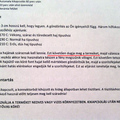Andrew beküldése érdekes kérdéseket vet fel:
Ma láttam valahol, hogy Haruki Murakami "Norwegian Wood" című könyve magyarul "Norvég Erdő" címen jelent meg.
Gyanús volt ez nekem, ugyanis angolul a "wood" fát, pontosabban faanyagot jelent. "Woods" jelent erdőt.
A "Norwegian Wood" kifejezés a könyv címében egy Beatles számból származik. Értelmére vonatkozóan megbízható forrás így nyilatkozik:
"Norwegian Wood" refers to the cheap pinewood that often finished the interiors of working class British flats. The last verse states that the singer lights a fire, the implication being that the singer in fact sets fire to the girl's flat, presumably as revenge for not sleeping with the singer.
McCartney himself states the final line of the song indicates that the singer burned the home of the girl. As he explained:
Peter Asher [brother of McCartney's then-girlfriend Jane Asher] had just done his room out in wood, and a lot of people were decorating their places in wood. Norwegian wood. It was pine, really, just cheap pine. But it's not as good a title, is it, "Cheap Pine"? It was a little parody, really, on those kind of girls who, when you'd get back to their flat, there would be a lot of Norwegian wood. It was completely imaginary from my point of view, but not from John's. It was based on an affair he had. She made him sleep in the bath and then, finally, in the last verse, I had this idea to set the Norwegian wood on fire as a revenge. She led him on and said, "You'd better sleep in the bath." And in our world, that meant the guy having some sort of revenge, so it meant burning the place down...
Sajnálom, hogy ezt angolul kell küldenem, megértése bizonyára nem okoz problémát.
Azért tettem ki ezt a beküldést soron kívül, mert a KönyvesBlogon most foglalkoztak vele.
György is beküldte, ő némileg rövidebbre fogva:
Most olvasom a Wikipedia szócikkében, hogy a Norwegian Wood című Murakami Haruki-regényt japánul is (és persze magyarul is) norvég erdőnek fordították, holott a Beatles-számban "norvég faanyag" értelemben szerepel.
Néhány megjegyzés az első beküldéssel kapcsolatban: a cím egyértelműen félrefordítás, ez nem vitás. De a wood jelenti azt is, hogy a group of trees, kvázi a woods szinonimája. A posztbeli idézet pedig a Wikipédiáról van.
Az más kérdés, hogy ha az eredeti japán cím szó szerint fordítva "Norvég erdő", akkor itt mi a követendő fordítói magatartás - megtartani és terjeszteni a félrefordítást a pontos fordítás érdekében? Vagy okosabbnak lenni a szerzőnél és kvázi javítani az eredeti címet?



